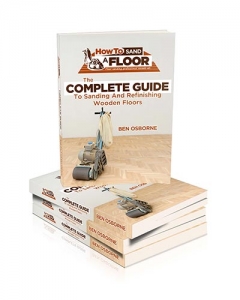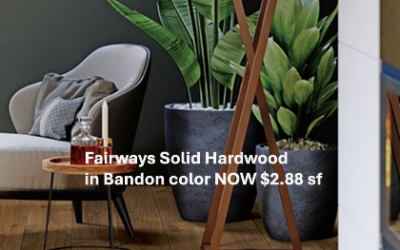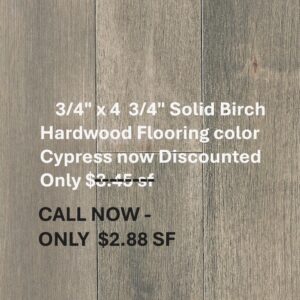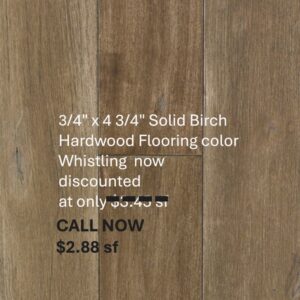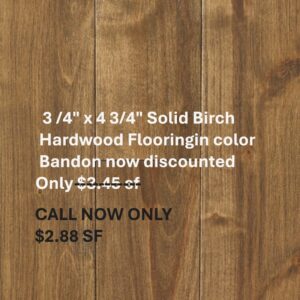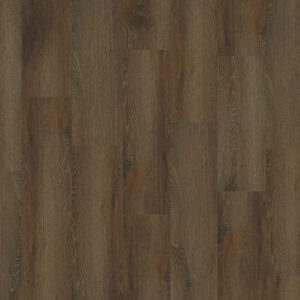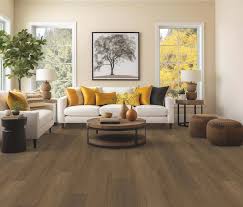Are you looking to increase the value of your home? Look no further than the flooring. A well-chosen flooring option can not only enhance the aesthetic appeal of your home but also significantly boost its overall value. When it comes to making a lasting impression on potential buyers, flooring plays a crucial role. In this article, we will explore how the right flooring choice can improve and increase the value of your home, making it a wise investment for the future. So, whether you’re planning to sell your property or simply want to enhance its worth, read on to discover the transformative power of flooring.
Benefits of High-Quality Flooring
Enhanced Aesthetic Appeal
When it comes to enhancing the overall aesthetic appeal of your home, high-quality flooring plays a significant role. The flooring sets the foundation for the design scheme of any room, and premium flooring options can elevate the look and feel of your space. Whether you prefer the warm and timeless beauty of hardwood or the sleek and versatile elegance of porcelain tile, investing in high-quality flooring can instantly transform the ambiance of your home.
Improved Durability and Longevity
Another noteworthy benefit of high-quality flooring is its superior durability and longevity. Opting for top-notch flooring materials ensures that your floors can withstand the test of time, daily wear and tear, and heavy foot traffic. Investing in durable flooring options can save you from the headache of frequent repairs or replacements, contributing to the overall value of your home by providing long-lasting functionality.
Increased Home Value
Perhaps the most compelling benefit of high-quality flooring is its ability to increase the value of your home. Upgrading your flooring not only enhances the aesthetic appeal and durability of your space but also significantly improves the market value of your property. Potential buyers are more likely to be captivated by a home with attractive, well-maintained flooring, as it adds a sense of luxury and sophistication.
Types of Flooring that Increase Home Value
Hardwood Flooring
Hardwood flooring is a timeless classic that never goes out of style. It is highly prized by homeowners and potential buyers alike for its natural beauty, warmth, and durability. The elegance and versatility of hardwood can elevate the aesthetic appeal of any room, from traditional to contemporary designs. Whether you choose oak, maple, or exotic hardwood species, investing in hardwood flooring can significantly increase the value of your home.
Laminate Flooring
Laminate flooring provides a cost-effective alternative to natural hardwood while still offering great aesthetics and functionality. With advancements in technology, laminate flooring can mimic the appearance of various hardwood species and even stone or tile. This versatile flooring option is highly durable, easy to clean, and resistant to scratches and stains. As an affordable and attractive solution, laminate flooring can definitely increase your home’s value.
Porcelain or Ceramic Tile Flooring
Porcelain or ceramic tile flooring is an excellent choice for bathrooms, kitchens, and other high-moisture areas of your home. These flooring options are known for their exceptional durability, water resistance, and low maintenance requirements. With a wide range of designs, colors, and textures available, porcelain or ceramic tile flooring can add a touch of elegance to any space and significantly increase the value of your home.
Natural Stone Flooring
If you want to make a bold statement and create a luxurious ambiance, natural stone flooring is an ideal choice. With options like marble, granite, limestone, and travertine, natural stone flooring exudes elegance, sophistication, and timeless beauty. The inherent uniqueness of each stone piece adds character to your home and increases its overall value. Although natural stone flooring might require more maintenance, the stunning aesthetic appeal makes it a highly desirable option for homeowners and buyers alike.
Luxury Vinyl Flooring
Luxury vinyl flooring has gained popularity in recent years due to its remarkable resemblance to natural materials, combined with its durability and affordability. With advancements in manufacturing techniques, luxury vinyl flooring can mimic the look of hardwood, stone, or tile, offering a wide range of design options. This resilient flooring choice is highly resistant to scratches, water, and stains, making it suitable for high-traffic areas. Investing in luxury vinyl flooring can enhance the value of your home without breaking the bank.
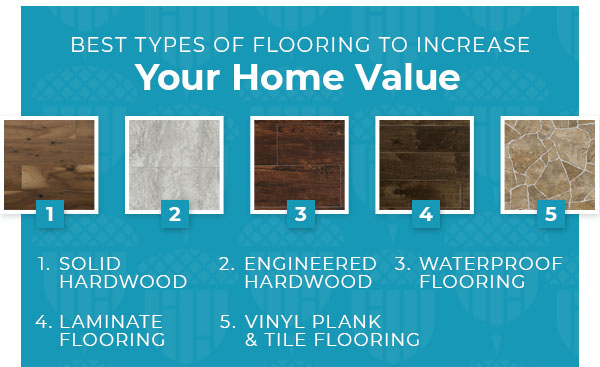
This image is property of twentyandoak.com.
Factors Impacting Home Value through Flooring
Material Quality and Condition
The quality and condition of your flooring play a significant role in determining the impact it has on your home’s value. High-quality materials, such as solid hardwood or premium porcelain tile, are more likely to increase the value compared to lower-quality alternatives. Additionally, maintaining your flooring in good condition through regular upkeep and addressing any damages can contribute to its long-term value.
Overall Design and Style
The overall design and style of your flooring also impact its value-enhancing potential. Choosing a flooring option that complements the overall aesthetic of your home and fits well with the existing color scheme and decor can significantly contribute to its appeal. A well-designed and cohesive flooring scheme adds value by creating a visually pleasing and harmonious environment.
Consistency Throughout the House
Consistency in flooring throughout the house is an essential factor that impacts home value. Having a consistent flooring material and design throughout different rooms and spaces creates a sense of flow and unity, enhancing the overall aesthetic value. Potential buyers tend to appreciate homes with consistent flooring as it provides a cohesive and well-designed living space.
Proper Installation and Maintenance
Ensuring proper installation and maintenance of your flooring is crucial for maximizing its value. Poor installation or neglecting regular maintenance can result in issues such as uneven floors, loose tiles, or damage over time, which can decrease the overall value of your home. Hiring a professional flooring installer and following recommended maintenance guidelines can help preserve the longevity and attractiveness of your floors, boosting your home’s value.
How Flooring Enhances Home Value
First Impressions and Curb Appeal
When potential buyers approach your home, the flooring they encounter creates the first impression. High-quality flooring can create a positive initial impact, contributing to the overall curb appeal of your property. A well-maintained and visually appealing entrance sets the tone and expectation for the rest of the home, inviting buyers to explore further.
Improved Functionality and Livability
Investing in high-quality flooring enhances the functionality and livability of your home. Durable and easy-to-maintain flooring options can withstand the demands of daily activities, such as foot traffic, spills, and pet accidents. High-quality flooring can also provide better insulation, reducing noise transmission and energy costs. These functional benefits directly contribute to the overall value of your home.
Greater Market Appeal
Flooring upgrades have a significant impact on the market appeal of your home. Potential buyers are more likely to be attracted to a property with contemporary, clean, and well-maintained flooring options. Additionally, flooring materials that are currently on-trend and popular with buyers can make your home more appealing in a competitive real estate market. The greater market appeal translates into increased demand and potentially higher selling prices.
ROI and Cost-Effectiveness
Installing high-quality flooring not only enhances your home’s value but can also provide a favorable return on investment (ROI). While the initial cost of flooring installation can vary depending on the material and scope of the project, the long-term value it adds to your home often outweighs the upfront expense. In addition, the durability and longevity of high-quality flooring options make them a cost-effective choice in the long run.
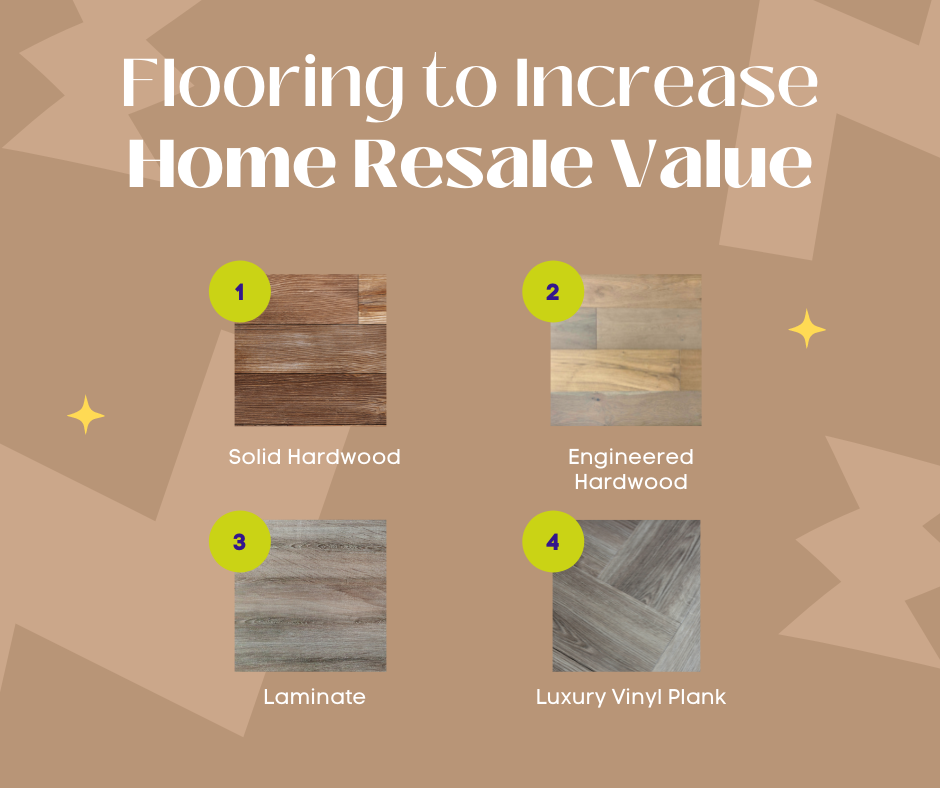
This image is property of images.squarespace-cdn.com.
Flooring and Return on Investment (ROI)
ROI as a Financial Benefit
Return on investment (ROI) in the context of flooring refers to the financial benefit gained from upgrading or installing new flooring. Flooring choices that increase the value of your home beyond the initial investment contribute to a positive ROI. By selecting high-quality materials, maintaining them properly, and keeping up with design trends, you can maximize the ROI potential of your flooring investment.
ROI in Comparison to Other Home Improvements
In the realm of home improvements, flooring consistently ranks high in terms of ROI. Upgrading your flooring can provide a solid return compared to other home improvement projects. According to various studies, homeowners can expect to recoup a significant portion of their investment in flooring when selling their property. Investing in flooring is often considered a wise choice for homeowners looking to add value to their homes.
ROI Factors to Consider
When considering the ROI of flooring, several factors play a role. The quality of materials, proper installation, maintenance, and the overall appeal of the flooring all impact the potential ROI. Additionally, market trends and buyer preferences can influence the ROI of flooring choices. It is essential to consider these factors to maximize the financial benefit of your flooring investment.
The Role of Flooring in Home Appraisals
The Influence of Flooring on Appraised Value
Flooring plays a significant role in determining the appraised value of your home. Appraisers take into account the quality, condition, and overall aesthetic appeal of your flooring when assessing the worth of your property. Upgrading your flooring to higher-quality materials or maintaining existing flooring in excellent condition can positively impact the appraised value of your home.
Appraiser Evaluation Criteria
Appraisers use specific evaluation criteria when assessing the value of flooring. They consider the quality of materials, durability, design, installation, and overall condition of the flooring. Appraisers also take into account how well the flooring complements the rest of the interior design and the functional benefits it provides. Understanding the criteria used by appraisers can help you make informed decisions when selecting and maintaining your flooring.
Tips for Maximizing Appraisal Value
To maximize the appraisal value of your home, it is essential to focus on flooring considerations. Opt for high-quality flooring materials, install them properly, and maintain them regularly to ensure a positive appraisal. Consistency in flooring throughout the house and choosing designs that appeal to a wide range of buyers can also contribute to a higher appraised value. It is crucial to invest in flooring that aligns with the expectations and preferences of potential buyers in your area.
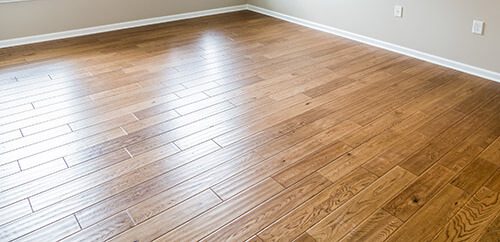
This image is property of www.nadinefloors.com.
Preventing Floor Deterioration
Proactive Maintenance and Care
To prevent floor deterioration and maintain the value of your flooring, proactive maintenance and care are essential. Regularly clean your floors using appropriate methods and products recommended for the specific flooring material. Wipe up spills promptly, avoid dragging heavy furniture across the floor, and use protective pads or mats in high-traffic areas. By taking proactive measures, you can prevent unnecessary wear and tear, keeping your floors in optimal condition.
Regular Cleaning and Inspection
Routine cleaning and inspection are crucial for preventing floor deterioration. Follow manufacturer guidelines for cleaning your flooring to avoid using harsh chemicals or abrasive tools that may damage the surface. Additionally, regularly inspect your floors for signs of wear, scratches, or any other potential issues. Promptly addressing any damages or concerns can help prevent further deterioration and protect the value of your flooring.
Addressing Damages and Wear and Tear
Flooring can be subject to damages and wear and tear over time. It is important to address these issues promptly to prevent further deterioration. Whether it’s refinishing hardwood floors, replacing a damaged tile, or repairing a section of laminate flooring, addressing damages promptly can help maintain the value and aesthetics of your flooring. Consulting with flooring professionals can ensure that these repairs are done correctly.
The Impact of Flooring on Homebuyers
Buyers’ Preferences and Expectations
Homebuyers often have specific preferences and expectations when it comes to flooring. Many buyers prioritize high-quality materials that are aesthetically pleasing, durable, and low maintenance. Buyers may also have a preference for specific flooring types based on their lifestyle, such as hardwood for its warmth or tile for its water resistance. Understanding buyers’ preferences and meeting their expectations regarding flooring can make your home more appealing and increase its market value.
Higher Demand and Competitive Advantage
Investing in high-quality flooring can give you a competitive advantage in the real estate market. Homes with well-maintained, modern, and desirable flooring options tend to attract more potential buyers. When your home stands out from the competition with its flooring choices, it increases the demand and desirability, potentially leading to multiple offers and higher selling prices. Flooring upgrades can be a strategic investment to position your home favorably in a competitive market.
Flooring as a Selling Point
Flooring can serve as a selling point and a key feature that sets your home apart. Highlighting the quality and design of your flooring in marketing materials and during home showings can attract buyers’ attention and generate interest. Effective marketing strategies that showcase your flooring can convey the value it adds to your home, ultimately influencing buyers’ decision-making and increasing their willingness to pay a higher price.

This image is property of uphomes.com.
Considerations for Flooring Upgrades
Budgeting and Cost Analysis
Before embarking on a flooring upgrade project, it is essential to establish a budget and conduct a cost analysis. Research the cost of different flooring materials, installation expenses, and any additional costs associated with preparation or maintenance. Consider the overall value impact and potential ROI of each flooring option within your budget to make an informed decision.
Choosing the Right Flooring Material
Choosing the right flooring material involves considering various factors, including your personal preferences, the functionality of the space, maintenance requirements, and the overall aesthetic appeal. Evaluate the pros and cons of each flooring type to determine the best fit for your home. Consulting with flooring professionals can provide valuable insights and help you select the flooring material that best aligns with your needs and objectives.
Professional Installation Considerations
While some homeowners may opt for do-it-yourself flooring installation, it is crucial to consider the benefits of professional installation. Professional installers have the expertise, tools, and experience necessary to ensure proper installation, which directly impacts the performance and lifespan of your flooring. Hiring professionals also minimizes the risk of installation errors and can help avoid potential additional costs down the line.
Conclusion
Investing in high-quality flooring offers numerous benefits that enhance the value and appeal of your home. From the enhanced aesthetic appeal to improved durability, high-quality flooring is a sound investment. By considering factors such as material quality, design, installation, and maintenance, you can maximize the value-added potential of your flooring choices. Whether you opt for hardwood, laminate, tile, natural stone, or luxury vinyl, upgrading your flooring can elevate your home’s value while creating a beautiful and comfortable living space.





